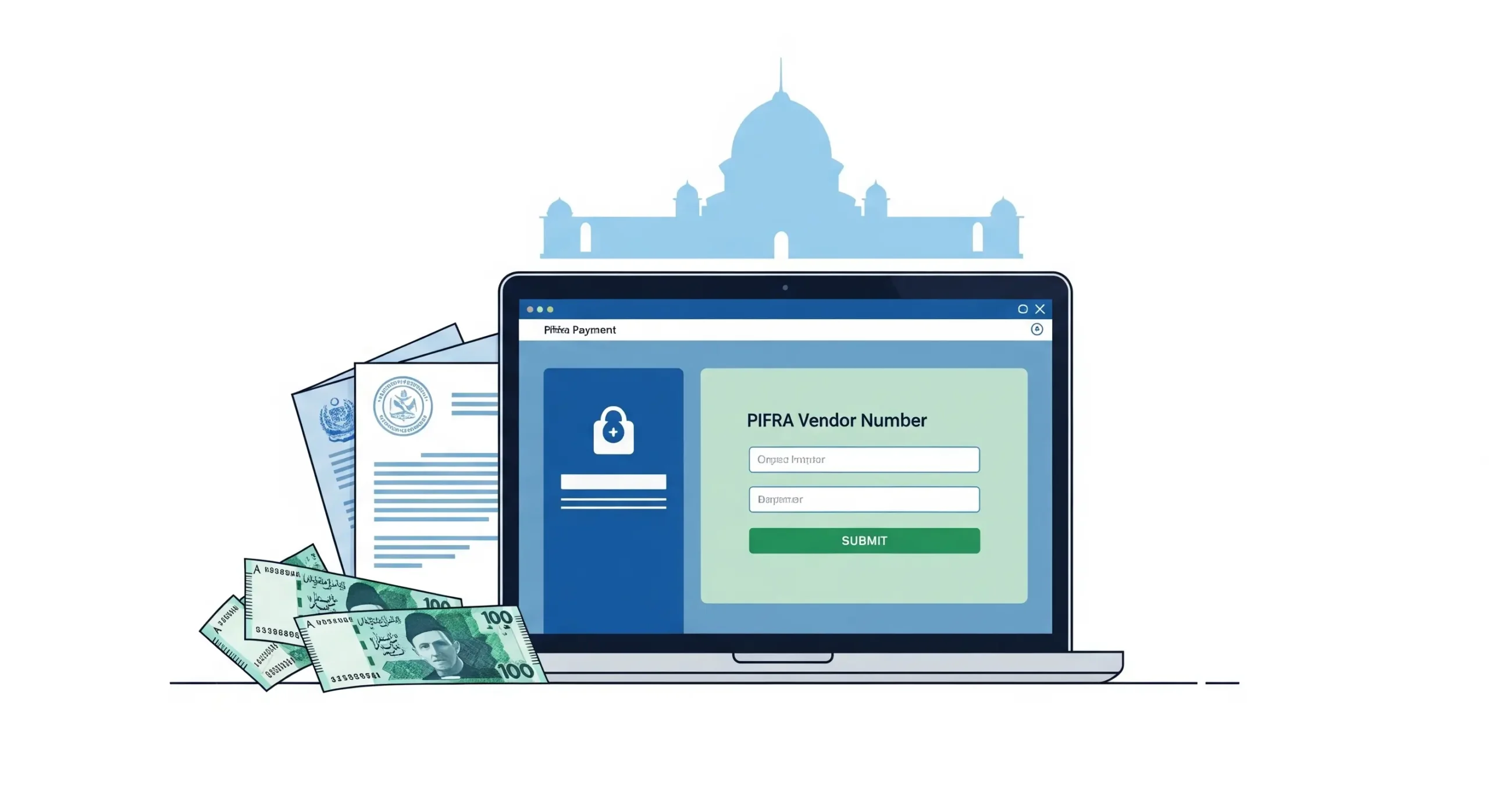PIFRA Vendor Number Complete Guide for Government Payment Recipients

The PIFRA Vendor Number is a critical identifier in Pakistan’s government payment system that ensures suppliers, contractors, and service providers receive their payments securely and on time. As Pakistan moves toward digital public finance management, this vendor number plays a key role in connecting vendors with government departments, streamlining financial transactions, and improving transparency.
Despite its importance, many vendors remain unclear about how the system works, how to get registered, or what benefits it brings. This article breaks it all down in a simple, practical way—without the jargon.
What Is a PIFRA Vendor Number?
The Vendor Number is a unique identification code assigned to individuals, businesses, or organizations who receive payments from government departments. It is part of Pakistan’s larger initiative under the PIFRA project—aimed at improving financial transparency and reducing manual processing in public sector payments.
If you’re dealing with any government department as a supplier, contractor, pensioner, or even an employee receiving reimbursements, this number is essential. It ties your identity to your payment details and ensures your transactions are recorded within the government’s centralized accounting system.
Why You Need a Vendor Number
Having a Vendor Number is not just a formality—it’s a necessity for anyone expecting payments from a government institution. Without this number, your payment process can be delayed or rejected entirely.
Here’s why it matters:
- It ensures timely and secure bank transfers from government accounts to yours.
- It allows you to track your payment history digitally.
- It confirms your registration with the official government payment system.
Once assigned, your vendor number stays linked to your CNIC or business registration, making it easier to manage future transactions without repetitive paperwork.
How to Register for a Vendor Number
Getting registered is a one-time process, but it’s important to get it right. Errors or missing information can lead to significant delays.
Here’s a basic overview of what you’ll need:
- A valid CNIC (if applying as an individual) or company NTN (if applying as a business).
- A bank account in your name (the same name as your CNIC or business title).
- Details of the government department you’re dealing with.
To apply:
- Fill out the vendor registration form available from the concerned Accountant General (AG) office.
- Attach required documents like CNIC copy, bank details, and any contract or work order if applicable.
- Submit to the relevant AG office for verification and approval.
Once approved, your Vendor Number will be generated and used in all your future government-related transactions.
How to Check Your Vendor Number Status
After registration, you may want to confirm that your details are active in the system, especially before expecting any payments. Although there’s no fully public portal yet, most provincial and federal departments offer limited access through their finance or accounts branches.
To verify your vendor number:
- Contact the finance/accounts office of the department you’re registered with.
- Provide your CNIC, bank account number, and any reference number from your submitted form.
- Ask for confirmation that your vendor number is active and linked to the correct payment channel.
This proactive step helps avoid surprises when waiting for your first payment.
Benefits of Having a Vendor Number
Beyond just getting paid, being a registered vendor comes with several long-term advantages, especially as more of the public sector moves toward automated systems.
Some of the key benefits include:
- Faster payment processing with fewer delays or manual errors.
- Easier eligibility for future tenders and government contracts.
- A digital record of transactions that supports better financial planning.
If you’re serious about doing business with government institutions, the Vendor Number is more than helpful—it’s essential.
Troubleshooting Common Issues
Some common issues vendors face include incorrect bank information, mismatched CNIC numbers, or delayed activation. If you run into a problem:
- Recheck the information you submitted, especially spelling and numeric accuracy.
- Follow up with the department’s accounts section; delays are often due to internal verification.
- If your bank account details change, update them immediately through the AG office to avoid payment failures.
Staying on top of your vendor profile helps keep payments consistent and avoids months-long follow-ups.
Final Thoughts
The PIFRA Vendor Number might sound like a minor administrative detail, but it plays a major role in ensuring transparency and efficiency in public payments. For individuals and businesses working with government departments in Pakistan, having this number isn’t just a box to tick—it’s a professional standard.
If you haven’t applied for yours yet, now’s the time. Not only will it simplify your payment process, but it also establishes your credibility within Pakistan’s modernizing public finance system. In a world moving toward digital accountability, the vendor number isn’t just useful—it’s your connection to a faster, cleaner, and more reliable financial relationship with the government.




